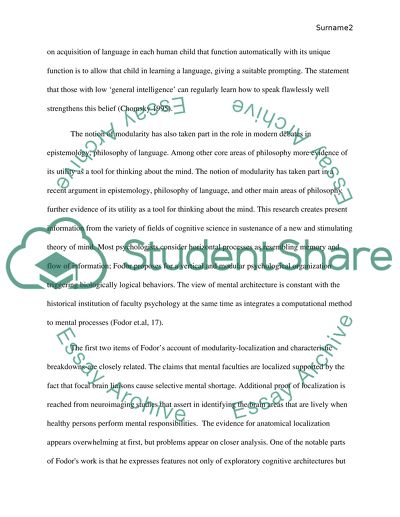Cite this document
(“Modularity of Mind Essay Example | Topics and Well Written Essays - 1000 words”, n.d.)
Retrieved de https://studentshare.org/philosophy/1678226-modularity-of-mind
Retrieved de https://studentshare.org/philosophy/1678226-modularity-of-mind
(Modularity of Mind Essay Example | Topics and Well Written Essays - 1000 Words)
https://studentshare.org/philosophy/1678226-modularity-of-mind.
https://studentshare.org/philosophy/1678226-modularity-of-mind.
“Modularity of Mind Essay Example | Topics and Well Written Essays - 1000 Words”, n.d. https://studentshare.org/philosophy/1678226-modularity-of-mind.


